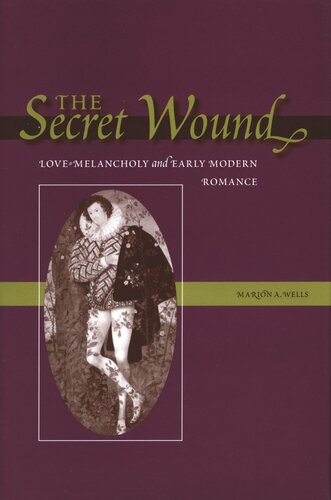

Most ebook files are in PDF format, so you can easily read them using various software such as Foxit Reader or directly on the Google Chrome browser.
Some ebook files are released by publishers in other formats such as .awz, .mobi, .epub, .fb2, etc. You may need to install specific software to read these formats on mobile/PC, such as Calibre.
Please read the tutorial at this link: https://ebookbell.com/faq
We offer FREE conversion to the popular formats you request; however, this may take some time. Therefore, right after payment, please email us, and we will try to provide the service as quickly as possible.
For some exceptional file formats or broken links (if any), please refrain from opening any disputes. Instead, email us first, and we will try to assist within a maximum of 6 hours.
EbookBell Team

4.3
38 reviewsThis book offers a new reading of early modern romance in the light of historically contemporary accounts of mind, and specifically the medical tradition of love-melancholy. The book argues that the medical profile of the melancholic lover provides an essential context for understanding the characteristic patterns of romance: narrative deferral, epistemological uncertainty, and the endless quest for a quasi-phantasmic beloved. Unlike many recent studies of romance, this book establishes a detailed historical basis for investigating the psychological structure of romance. Wells begins by tracing the development of the medical disorder first known in the Latin west as amor hereos (lovesickness) from its earliest roots in Greek and Arabic medicine to its translation into the Latin medical tradition. Drawing on this detailed historical material, the book considers three important early modern romances: Ariosto's Orlando Furioso, Tasso's Gerusalemme Liberata, and Spenser's The Faerie Queene, concluding with a brief consideration of the significance of this literary and medical legacy for Romanticism. Most broadly, the interdisciplinary nature of this study allows the author to investigate the central critical problem of early modern subjectivity in substantially new ways.